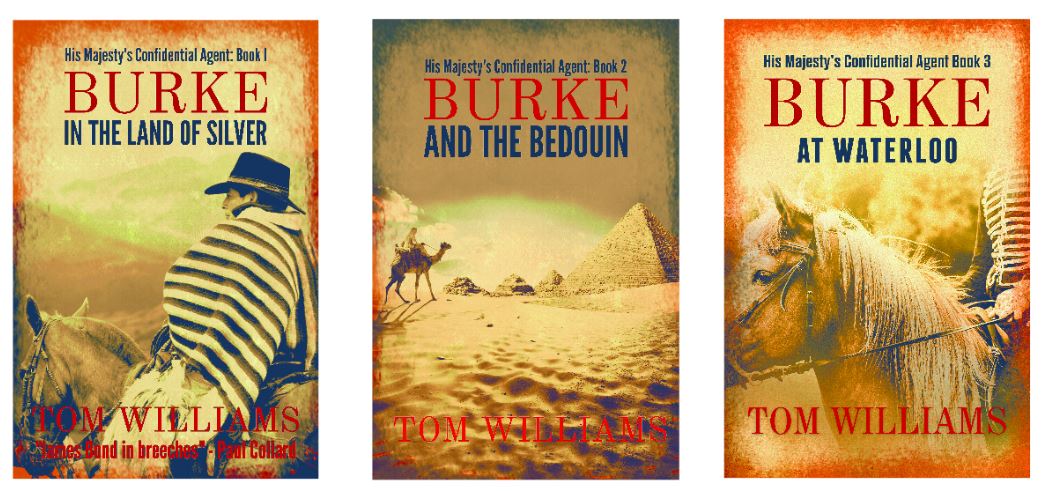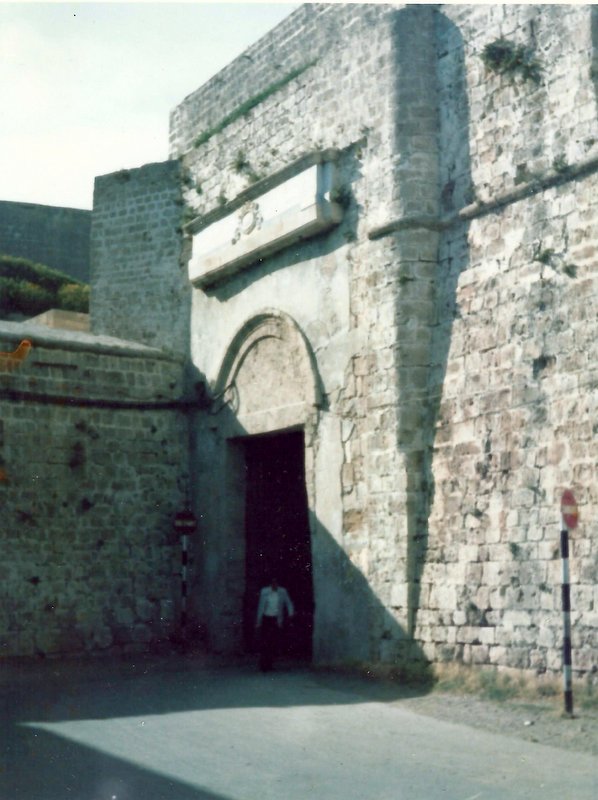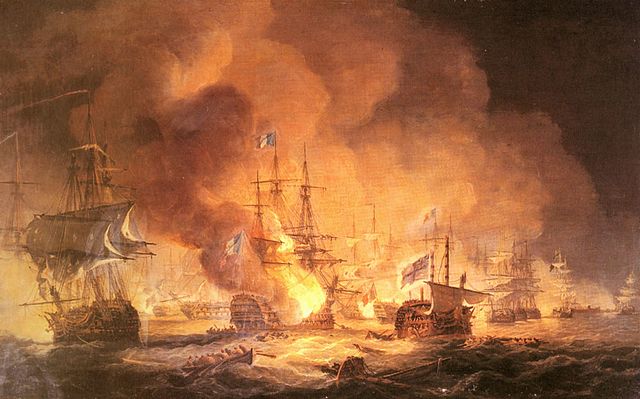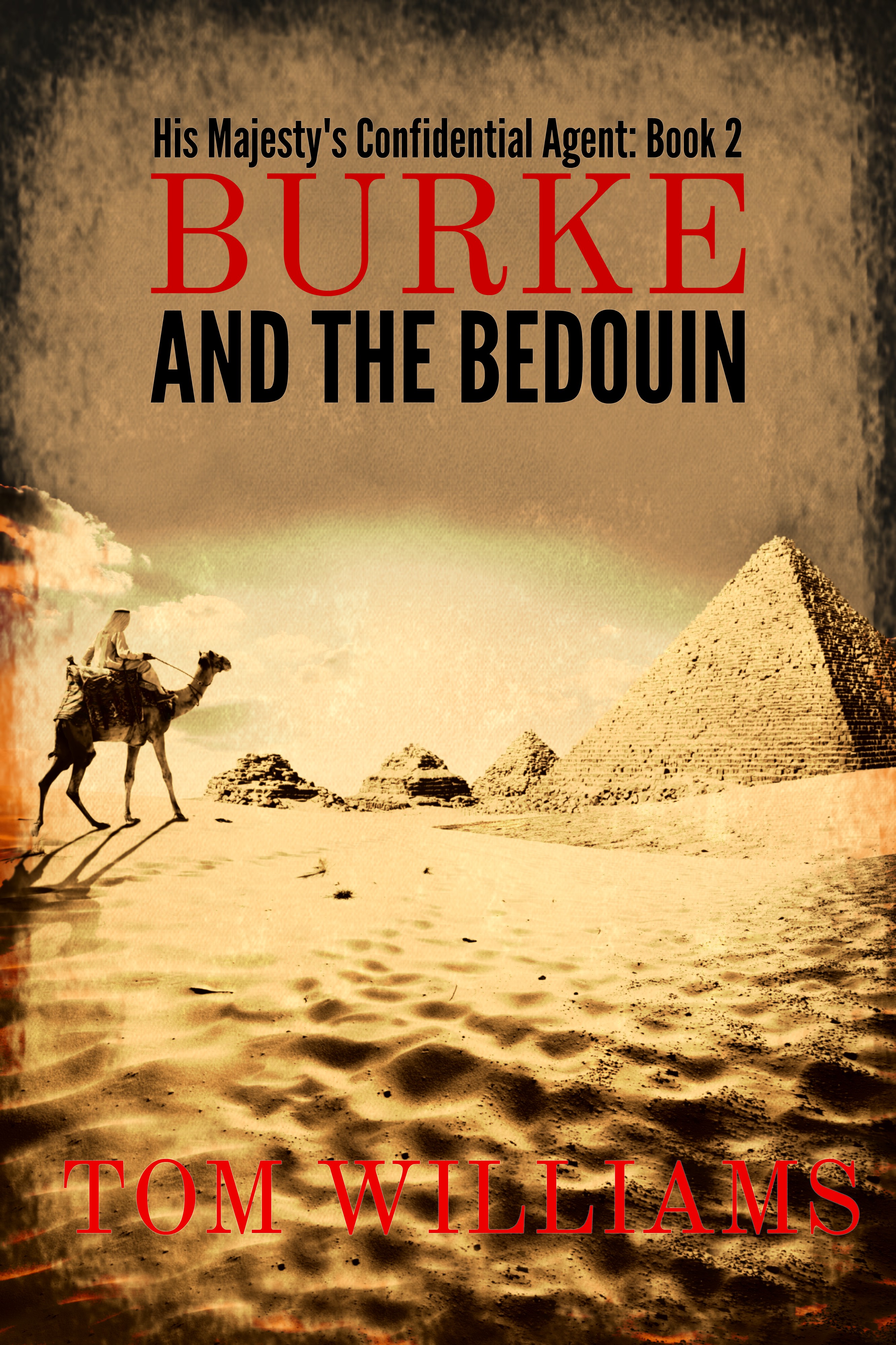by TCW | Dec 14, 2018 | Uncategorized
This social media is a funny kettle of fish, and no mistake.
 Fish. (No kettle)
Fish. (No kettle)
I have my blog (you’re reading it), which is pretty straightforward. I write about the history behind my books, or historical things that I think might interest my readers, or writing, or completely random stuff like tango. It is a mystery to me why some posts attract a lot of interest and others, which seem reasonably similar to me, are much less well read, but month on month it ticks along with a fair few readers (and, I suspect, quite a lot of bots) and it makes sense to me and all is well with the world.
To get readers on my blog, though, I need to let people know that it is there. I do this partly through Facebook. I have a Facebook author page. This mainly lets people know what’s on my blog that week but I may use it for bits of news that don’t really justify a blog post but which may interest readers. Sometimes I just share stuff because it excites me and you might like it.
I recently posted a photo of my son’s wedding, which I expected would get quite a few visits and Facebook says that it has – partly, I think, friends (real-life friends rather than Facebook friends) who hadn’t seen any of the wedding photos yet. Last week, though, I also posted a photo of a fire flickering in the grate in our front room. I don’t know why I posted it really: it was just that I’d had a day doing no work at all and I was putting in my excuses, I guess. It turns out that this picture is (apart from the wedding) the most popular thing I’ve posted for ages.
Why?
 You liked it so much I’m posting it again.
You liked it so much I’m posting it again.
Would you like more scenes of domestic life? What, and, really, why? I’m all in favour of giving the public what they want, so do let me know and I’ll try to oblige.
“Let me know,” I say, which brings me to another strange thing. There is a comment box below my blog every week so that you can, well, comment. I generally reply to comments and it lets other people join in. But very few people comment on the blog. This isn’t because they don’t have opinions on it. They post their views on Facebook and Twitter. Very occasionally they may e-mail or message me directly. But hardly anyone puts comments in the ‘Comment’ box. I’d love to know why not.
The third social media channel I use is Twitter. Again, I let people know what’s on my blog and I even suggest occasionally that they might be interested in reading one of my books. Otherwise I re-tweet stuff that has amused or interested me, respond to other people’s tweets and generally maunder on. As we’re restricted to 280 characters, the amount of maundering is quite limited so I don’t have to worry about being too boring. Twitter is also where I post photos I think people will like. Some people have suggested, reasonably enough, that I should post photos on Instagram but, seriously, you have to restrict the number of social media channels that you use and I think three is enough for me.
 Prettier than the Twitter bird, I think
Prettier than the Twitter bird, I think
I used to hate Twitter, but I’ve come to quite enjoy it, especially as people seem to be deserting Facebook as a way to keep in touch. I’ve met lovely people on Twitter, though they are overwhelmingly other writers, which seems odd as I went on Twitter to try to connect with readers. I’m also confused about what people read on Twitter. Why do some tweets seem to attract a reasonable amount of interest (none of mine have ever attracted an enormous amount of interest, but I’m cool with that) while others remain unloved and unre-tweeted?
Does any of this matter? Nowadays writers are told that they have to have a social media presence and they tend to be judged by the number of followers they have or the number of Facebook page likes they have, so many people spend an amazing amount of time on social media. Often people suggest that it’s time that would be better spent actually writing the books, but without the social media presence it seems unlikely that they will sell their books, because nobody will have heard of them. On the other hand, most writers sell so few books anyway that the hours spent on social media per copy sold might more usefully be applied to standing at a crossroads with a box of paperbacks and hawking them to whoever passes by.
It’s a quandary or, as I said at the beginning, this social media is a funny kettle of fish.
A Word from our Sponsor
All this social media can be quite fun, but ultimately I’m trying to sell books. This time of year is really important as far as persuading people to part from their money is concerned especially if, like me, your books are available in paperback and hence make ideal Christmas gifts. All my books are available in the US as well as the UK. You can find out more about them on this very website (click on ‘My Books‘ in the menu at the top of the page) or have a look at my Amazon author page (author.to/TomWilliams).


by TCW | Dec 11, 2018 | Uncategorized
When I was still a teenager I went on holiday to the Middle East and found myself at Acre, looking at the crusader walls. Somewhere I read that the walls had defended the city against Napoleon. I never quite understood how Napoleon could have been fighting in Palestine. I thought it was probably a mistake.
 Gate at Acre
Gate at Acre
In fact, Napoleon’s attack on Acre was one of the last battles in his disastrous Egyptian campaign of 1798/9. For some reason this gets overlooked nowadays – perhaps because we think of Napoleon as a successful European general and just overlook this disastrous venture outside Europe.
In 1798 Napoleon was widely seen as the coming man in France and this alarmed the then rulers – the Directory. They wanted Napoleon out of the way, a goodly distance from Paris where it was thought he might rouse the mob to put him in charge. (They were right to worry, because that’s what actually happened only a year later.) There were suggestions that he might go and invade England, but British control of the channel made this unrealistic. Instead, under conditions of extreme secrecy, he put together a huge invasion force which set out across the Mediterranean to attack Egypt.
The French were very successful at keeping their plans a secret, but inevitably there were rumours. However, these were not taken seriously enough for any effective measures to stop the French invasion. But suppose that the British authorities had taken it just seriously enough to send one soldier-spy to Egypt to see if there were any disturbing signs of French activity? And suppose that the real-life James Burke, who we think started intelligence work soon after 1793, was sent to take a look?
That was the basis for Burke and the Bedouin. Burke does not take his mission too seriously. (Why should he? Nobody in London does.) Instead he sets off to go treasure hunting and gets involved with a Spanish slave girl, a prisoner of the Turks who nominally control Egypt. He’s happy enough adventuring in the desert when he discovers that the French are, indeed, about to invade. Before he can do anything to stop them, though, their troops are there and what had been a careless adventure becomes a ruthless campaign of guerrilla warfare.
Napoleon’s attempt to use the conquest of Egypt as a springboard for building a French Empire in the Middle East (or even invading India overland) ended with the Battle of the Nile, which destroyed the French fleet and cut Napoleon off from any possibility of supplies or reinforcement. For some reason the Battle of the Nile is largely forgotten today although it was an astonishing naval victory. Nelson destroyed a much stronger French fleet, an achievement which ranks alongside Trafalgar. At the time, it was seen as a pivotal battle but nowadays it’s probably best remembered, if at all, for the boy who stood on the burning deck – a real-life incident which occurred during the destruction of the French flagship, L’Orient.
The boy stood on the burning deck
Whence all but he had fled;
 The sinking of L’Orient. Painting by Thomas Luny (1759-1837)
The sinking of L’Orient. Painting by Thomas Luny (1759-1837)
One of the mysteries of the Battle of the Nile is why the French fleet had anchored in such a vulnerable position. One suggestion is that they were awaiting orders to sail but they never got them. In one version of the story, the orders were sent but for some reason never received. Could the courier maybe have been intercepted – perhaps by an agent working for the British? Did the mysterious James Burke have a hand in Nelson’s great victory and the foiling of the French plans?
Like all my books about James Burke, Burke and the Bedouin combines fact and fiction in an old-fashioned tale of adventure featuring camels, Bedouin, a beautiful damsel in distress and desperate moonlit races across the desert. Plus two major historical battles – the Battle of the Pyramids and the Battle of the Nile. All for just £1.99 on Kindle or £4.99 in paperback. Needless to say it makes an ideal Christmas gift.

by TCW | Dec 7, 2018 | Uncategorized
It’s December and I can no longer pretend that Christmas isn’t happening, so this week I welcome Jennifer Ash to my blog to tell us how Christmas should be celebrated.
————————————————————————————————————-
On 3rd December my latest novel, Edward’s Outlaw, was published. This medieval murder mystery adventure follows on from The Outlaw’s Ransom and The Winter Outlaw. All three novels form The Folville Chronicles– a set of novels set in fourteenth century England. (They can be read in order or as standalone tales.)

The second and third books in the collection are set just after Christmas. That got me to thinking about how many of the festive traditions we have today that hail from our medieval past.
For example, the practice of carol singers going from door to door was the result of carollers being banned from the churches. During the medieval period the word “carol” didn’t refer to just a song, but to singing and dancing in a circle. This was frowned upon by the churchmen of the age as it detracted from the seriousness of the occasion. Carol singers were ordered out onto the streets, and often sang in market places, or in front of rows of houses.
Another church related tradition that had its origins in medieval times is the Christmas crib or Nativity scene. In medieval Italy, in1223, Saint Francis of Assisi used a crib as a teaching tool to explain the Christmas story to the local population. Historians believe that this was the first time animals, such as the sheep and the donkey, were added to the Christmas story, even though the Bible does not mention them.
What about Christmas food? Well, Christmas puddings certainly date from medieval England, although they were rather different than those we eat today. Made from a spicy porridge known as frumenty, with currants and dried fruit stirred into it, along with egg yolks, cinnamon and nutmeg, it was a considerably runnier pudding than the one we’re used to.
The majority of Christmas dinners in the UK this year will feature a roast turkey. However, turkeys didn’t reach Britain until the late fifteenth century. In medieval times the rich ate goose, while the poorer families would roast a woodcock if they could get one. Those lords who had royal permission to eat venison would have that for their Christmas meal. Traditionally, the heart, liver, tongue, feet, ears and brains of the deer (a concoction known as the umbles), would be mixed together and made into a pie to give to the poor. This treat became known as humble pie.
And how about some entertainment? Whereas today we might go to see our children in a nativity play at Christmas, in the Middle Ages people could look forward to seeing the Mummers. These travelling actors performed plays and dances in villages, manors, and castles. During the winter, mystery plays were traditionally based on the story of Christ’s birth. The part of King Herod within these plays was the first role that can be seen as being the equivalent of a ‘baddie’ in a modern day pantomime, with the crowd often booing when he came on stage.

I hope these few Christmas blasts from the past have made you smile!
If you’d like to read my medieval mystery adventures, then you can find all the links at www.jenniferash.co.uk
Mathilda of Twyford’s adventure starts in The Outlaw’s Ransom –

https://www.amazon.co.uk/dp/B07B3TNRYN/ref=sr_1_1?ie=UTF8&qid=1519759895&sr=8-1&keywords=the+outlaw%27s+ransom
https://www.amazon.com/dp/B07B3TNRYN/ref=sr_1_1?ie=UTF8&qid=1519760741&sr=8-1&keywords=the+outlaw%27s+ransom
Happy reading everyone,

Jennifer (aka Jenny!!) xx

by TCW | Dec 4, 2018 | Book review
Sapere Books have got into the way of offering me historical novels to review, which suits me because their editor seems to have an eye for a good book. (yes, they did offer to take mine but I’d just signed with Endeavour and that’s working out well for me.)
The latest is this tale of skulduggery and derring-do in the wilds of Northern England.
When the Duke of Penrith’s agent suddenly dies, the extent of his peculation is revealed. Raif Jarrett agrees to use his leave from the Army to sort out the mess, but things are worse than they seem. Soon there is murder and riot and the agent himself finds his life at risk.
That’s not much of a plot summary, but it’s all you’re getting from me. The plot is both ridiculously complicated and, at its heart, very simple, and definitely worth reading for yourself. It’s not the plot that kept me going, though, but the excellent characterisation. I warmed to the wounded soldier, Raif, and the man who looks set to become his side-kick (this is clearly the first book in a series), the poacher, Duffin. The love interest, Henrietta Lonsdale, is, as seems the way with this sort of book, rather forward for a woman of her time (it’s 1811), but not excessively so and she has the decency to be occasionally embarrassed by it. Minor characters are rounded people in their own right, especially the valet, Tiplady, “a Character, a family retainer of the old school”. I particularly enjoyed the corrupt magistrate, Raistrick, an excellent example of how much a really good villain can improve a book.
I can’t swear to every detail of the historical background, but it seemed sound and I didn’t find obvious errors pulling me out of the plot. I’m guessing Ms Jenkins rides (the way that horses are dealt with rings very true) but that she does not mix with the kind of company where she has to fake drinking from a bottle. (You stop the bottle with your tongue: her hero uses his teeth, which would have been messy.)
The writing is pacey and easy to read without ever being rushed and I found myself putting off other things to read on. It’s not a book that will change your life or give you brilliant insights into the human condition, but it will entertain splendidly. I recommend it.
by TCW | Nov 30, 2018 | Uncategorized
Waterloo might have had much less impact than is often claimed on the history of 19th century Europe, but the repercussions of Napoleon’s reign and the way it ended have rolled on down the centuries.
It is often said that the First World War was the result of complex treaties and alliances that meant that a military response to the shooting of an Austrian Grand Duke in Sarajevo was to plunge the world into four years of war. The suggestion is that the diplomatic arrangements that created this situation had arisen by some sort of historical mischance and that their outcome was an unpredictable horror. In fact, the Treaty of Vienna was specifically designed to set up such a pattern of alliances, creating a ‘Balance of Power’ that by-and-large, kept the peace in Europe for 100 years. The logic of the system was that any serious conflict between the Great Powers would draw in so many other countries and any resulting conflagration would be so unthinkable that matters would be settled by negotiation rather than war. It was, if you like, an early version of the strategy that developed in the late 20th century, which we called Mutually Assured Destruction.
The Second World War is generally acknowledged as an almost inevitable coda to the First World War. The end of the Second World War saw Europe divided between East and West, with the building of the Berlin Wall and its eventual destruction in 1989. It is fair to say that the fall of the Berlin Wall was presaged by the treaty that marked the fall of Napoleon.
But what about Waterloo? After all, the Treaty of Vienna would have wound the mechanism that ended with the apparent triumph of the West whether or not Napoleon had won the battle to hang on as the Emperor of a very much reduced France.
The long-term significance of the outcome of Waterloo was mainly the effect it had on Britain and Britain’s relationship with the continental powers. Britain was the only European country to remain at war with Napoleon for the whole of his reign. (We were not technically at war during the peace of Amiens 1802 – 1803, but then neither was the rest of Europe.) Britain’s military efforts were confined mainly to naval blockade, and fighting in the Iberian peninsula, but the country was extremely important diplomatically and it was British money that bankrolled many of the armies fighting Napoleon. The “British” victory at Waterloo set the seal on the notion that Britain alone had saved Europe from Napoleon. The result was a belief that Britain was somehow ‘better’ than the continental countries, a belief that carries on to today, bolstered by the idea that Britain stood ‘alone’ in World War II as well.
Britain was certainly ‘different’ from the rest of Europe. Never having been part of the Napoleonic project it retained its Imperial system of measurement and its old system of Common Law when other countries switched to metric measures and codified legal systems owing more or less to the Code Napoleon.
The sense that Britain is both ‘better’ and ‘different’ meant relationships with other European countries were often uncomfortable and probably contributed to Britain’s Atlanticist leanings of the 20th century. The sense of history repeating itself in the Second World War did not help. In view of this, Britain’s reluctance to join the European Coal and Steel Community in 1951 or the European Economic Community in 1957 is more easily understood. Even when the arguments for joining the EEC became overwhelming there was always an emotional reluctance to be part of a supra-national European body from many British voters. In 2017 this sense of British exceptionalism was one of the emotional forces underpinning the vote to leave the European Union. The referendum result was, in part, a consequence of Wellington’s triumph at Waterloo.
Napoleon never really believed that he had been defeated at Waterloo. Like a football manager claiming that the final score was not a fair reflection of the strength of the teams, he insisted that Wellington had won by stubbornness, luck and the help of the Prussians, rather than by any superior strategy. Ironically, more than two centuries later, the French may argue that, in the long term, it was Britain that lost at Waterloo after all.
 Fish. (No kettle)
Fish. (No kettle) You liked it so much I’m posting it again.
You liked it so much I’m posting it again. Prettier than the Twitter bird, I think
Prettier than the Twitter bird, I think


 Gate at Acre
Gate at Acre The sinking of L’Orient. Painting by Thomas Luny (1759-1837)
The sinking of L’Orient. Painting by Thomas Luny (1759-1837)




